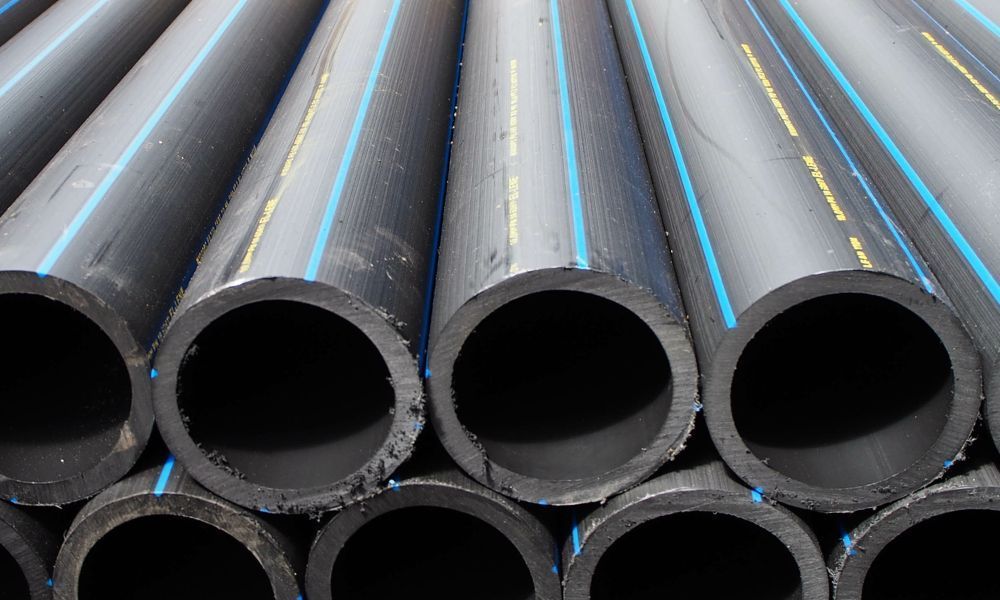Polyethylene pipes are the best solutions for commercial and industrial piping. Unlike traditional pipes, the material offers superior advantages, making them long-lasting. Explore the benefits of polyethylene pipes for water lines to understand why they’re popular.
Understanding Polyethylene Pipes
Polyethylene is a thermoplastic created from the polymerization of ethylene. Typically, polyethylene pipes transfer fluids and gases. Industries use the material to replace concrete or steel pipelines because they’re affordable and durable.
The most well-known polyethylene pipes are industrial HDPE pipe or high-density polyethylene. HDPE works for general drain piping like storm sewers and culverts. However, they’re perfect for slurry lines, gravity flow drainage, and other industrial applications.
Corrosion-Resistant
Corrosion resistance is a major benefit of polyethylene pipes for water lines. Polyethylene doesn’t rust because the material doesn’t create cavities susceptible to iron-oxidizing bacteria.
HDPE is mineral, moisture, and abrasion resistant. The long-term advantage is ideal for water lines because bacteria won’t infiltrate pipes and contaminate fluids.
Water lines maintain flow velocity without corrosion, and this eliminates low water pressure.
Temperature Friendly
Weather conditions influence piping, so it’s critical to use temperature-friendly materials. In particular, HDPE pipe can handle environmental temperatures ranging from -40 degrees to 140 degrees Fahrenheit.
Polyethylene water pipes are suitable for hot or cold water in various environments. Additionally, the pipes manage freeze and thaw cycles without sustaining damage to the material.
Leak-Free Joints
Harmful contaminants can enter drinking water through leaking pipes. Leaks also obstruct facilities as water pools on the ground. That said, leaks aren’t ideal in any scenario.
Polyethene pipes have fused joints, which eliminate potential leaks. They also reduce installation time! The fused joints are as durable as the pipes themselves, resulting in long-term, leak-free piping with minimal maintenance.
Durable
Generally, polyethylene pipes should last from 50 to 100 years. Unlike brittle piping, HDPE pipe are durable because they offer high impact, chemical, and water resistance. The material doesn’t break down like traditional piping. Additionally, HDPE is lightweight, which adds to its long lifespan.
Flexible
Most pipes are flexible or rigid, but HDPE is flexible. Polyethylene pipes have a bend radius of up to 20 times the pipe’s diameter. This allows pipes to conform to unique installation paths without breaking. HDPE supports water flow in all kinds of applications.


